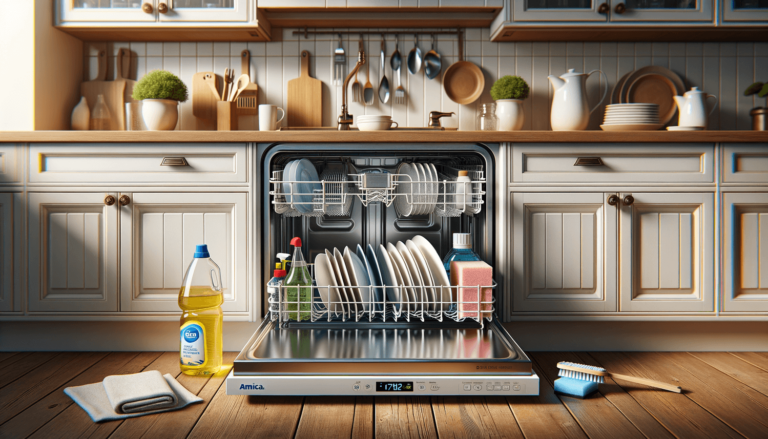

To clean an Amica Dishwasher, please follow these steps:
It’s important to clean dishwashers regularly to ensure they function optimally and maintain a hygienic environment for your dishes. Obvious signs that your Amica dishwasher needs cleaning include:
Regular maintenance is essential to extend the lifespan of your Amica dishwasher and to ensure it operates efficiently. A clean dishwasher:
At Settings King, a blog about technology settings, we recommend cleaning your Amica dishwasher at least once a month. However, if you notice any of the issues mentioned above, it’s time for a cleaning.
Here are some additional tips to help you maintain a clean dishwasher:
Follow the outlined steps and tips provided in this blog to ensure a clean, efficient Amica dishwasher that keeps your dishes spotless.
After reading our guide on how to clean Amica dishwashers, you might have some additional questions. We’ve compiled answers for some of the most common ones to further help you with your dishwasher maintenance tasks.
You should clean the dishwasher filter at least once a month or more frequently, depending on how heavily you use your dishwasher. However, inspect the filter regularly and clean it if you notice any visible debris or reduction in cleaning performance.
Yes, using vinegar and baking soda to clean your dishwasher is safe. These two natural cleaning agents are effective at breaking down limescale, removing odors, and clearing out food debris without damaging the interior of your dishwasher or causing harm to the environment.
You may use a commercial dishwasher cleaner that is specifically designed for dishwasher cleaning tasks instead of vinegar and baking soda. Follow the manufacturer’s instructions on the packaging to ensure proper usage.
If your dishwasher still has an unpleasant odor after cleaning, it may be an indication of a deeper issue. Check for any hidden debris, clogs, or standing water that could be causing the smell. If the problem persists, consider consulting a professional appliance repair service for a thorough inspection.
Improper draining in your dishwasher could be caused by a clogged drain pump or hose, a faulty drain pump, or even a blocked sink discharge. Check for any visible clogs and refer to your appliance’s user manual for proper troubleshooting. If the issue continues, it’s advisable to seek professional assistance.